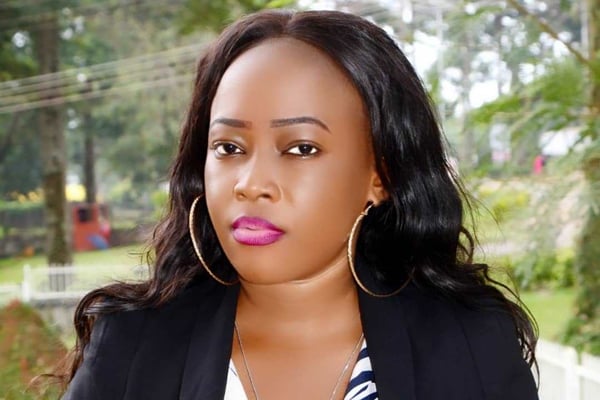
Godfrey Lutimba Matovu says consulting your supervisor will help one deal with difficult situations in procurement. PHOTO BY EVE MUGANGA
What have been the highlights of your work as a procurement officer?
I was the first manager of procurement under the Public Procurement and Disposal of Public Assets Authority (PPDA) Act & Regulations 2003 and I was part of the team that set up the Procurement and Disposal Unit (PDU) in 2005. I managed to lead the PDU and ensure all procurements complied with the law. In all audits by oversight agencies, Uganda Civil Aviation Authority (UCAA) has always been rated satisfactorily. I also handled procurement of many capital projects at UCAA, including airports and air navigation equipment in compliance with the law and overall achievement of value for money. In all the above, I ensured that transparency and fairness were always upheld with ethical conduct and UCAA has never been accused of fraud, financial loss or corruption arising from procurements.
What are some of the key things a person interested in working in procurement needs to know?
One must understand the procurement laws and processes, must be a problem solver, and guide users on how to achieve what they want in compliance with the law. They must be flexible and knowledgeable on how to handle the various procurements and meet stakeholders’ requirements in compliance with the law. Procurement calls for a team player and a good negotiator who efficiently ensures that procurements are completed promptly and within budgetary provisions. Constant consultation with the accounting officer and users is key.
What courses must a person study to improve their skills and marketability in this field?
A bachelor’s degree in procurement, supply chain, logistics or business administration is required. Professional qualifications such as CIPS are a requirement. There are other qualifications in supply chain management and logistics, which are also essential.
Above all, work experience is critical. No course teaches all the intricacies and challenges of handling the various types of procurements.
Procurement is known to be one of the sections with a high potential for fraud. What are some of the pitfalls and temptations one needs to look out for to avoid getting caught up in fraud?
That is a misconception. Procurement has so many checks and balances and many stakeholders that if processes and procedures are followed, there is little room for fraud. However, to avoid fraudulent practices, one must ensure competitive bidding, rotation of providers, separation of roles during the process, and compliance with the law. The auditing of procurement processes ensures that players in the process are constantly being checked for compliance. Procurement practitioners also need to live upright lives, avoid meeting bidders who may compromise them or share internal information during the procurement process.
What are some of the soft skills important for this kind of job?
Teamwork cannot be over-emphasized. Procurement calls for one to have negotiation skills, be an influencer, and be easily approachable by people to discuss challenges and find solutions. One also needs to be cheerful and be a good communicator so that at all levels, you can update stakeholders on what is going on. Lastly, do not take things too seriously all the time. Being compliant with the law does not mean behaving like a cop. Be cheerful and accommodating of other people’s views and advice.
What are some of the hard skills needed for this job?
Procurement is not a one-man’s show so you do not necessarily need those hard skills. Procurement has many players; some engineers, accountants, lawyers, auditors, IT specialists, public relations, and the list goes on. To ease your work, it is better to rely on specialists to handle those areas and you get expert advice or opinions when handling a procurement process.
Can you share a time when you dealt with a difficult situation and how you overcame it?
In procurement, we deal with difficult situations every day. Because the government spends around 70 percent of its budget through procurements, there is a lot of pressure from those who want to share that budget. There is pressure from all corners, some of them difficult to resist. To accommodate those difficult situations, your saviour is the law. Compliance with the procurement law is a must, otherwise when you are called to account, no one is there to save you. Consultation with your supervisor helps deal with difficult situations. Providing explanations to people with facts is key. Do not give false hope in situations where you cannot do something. Do not bend processes to deal with a difficult situation, otherwise it becomes worse.
Can you share a few important lessons you have picked from your work?
Patience, consultations, calmness, and being able to withstand pressure. Working odd hours is sometimes a must. I thank God that I have completed my work and have been appreciated by my family and colleagues. I thank PDU and all staff of UCAA for their support and guidance. I would not have done much without their support. I am also very grateful to the board and management of UCAA for having allowed me to serve.
Who is Godfrey Matovu?
I served as the manager of procurement at UCAA since 2005. I hold a Bachelor’s of Arts degree from Makerere University, a BA in Project Management from the London Institute, and a Master’s of Business Administration from the University of East London. I am also a Member of the Chartered Institute of Procurement and Supplies (CIPS), and an International Airport Professional. I was the chairman of the Chartered Institute of Procurement and Supplies Uganda for 10 years and vice chairperson of the Council of Institute of Procurement Professionals of Uganda (IPPU) for three years.
Prior to joining UCAA, I worked with Supply Chain and Logistics - Ford Motor Company, UK from 1996 – 2002. I then worked with the Ministry of Education and Sports as a Procurement Specialist in the Instruction Materials Unit from 2003-2004.





